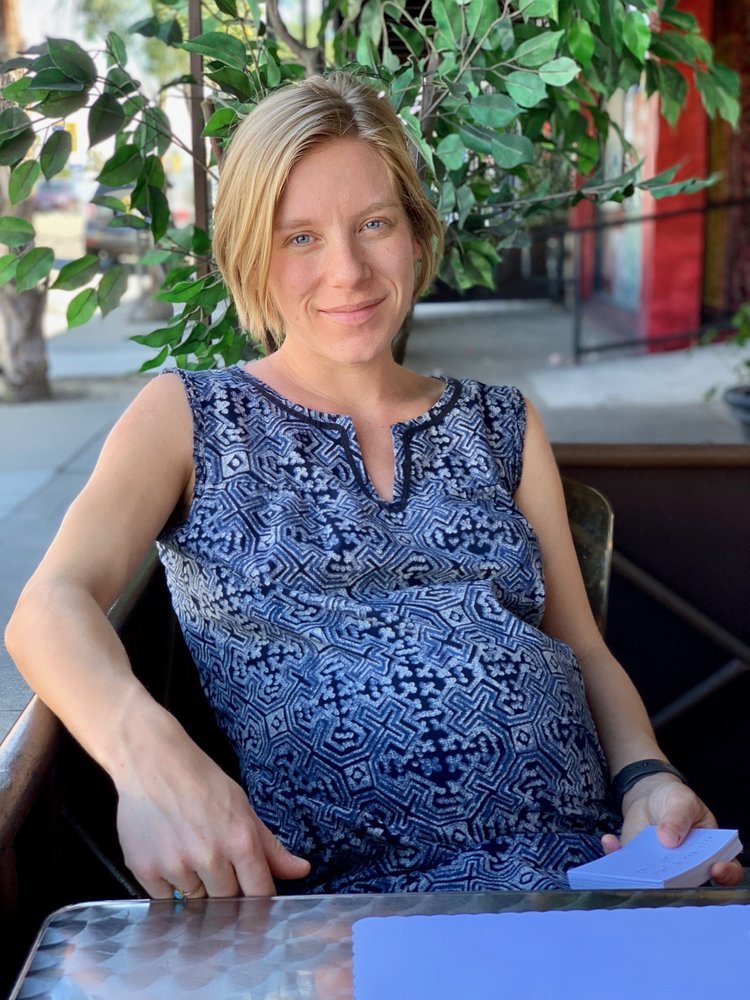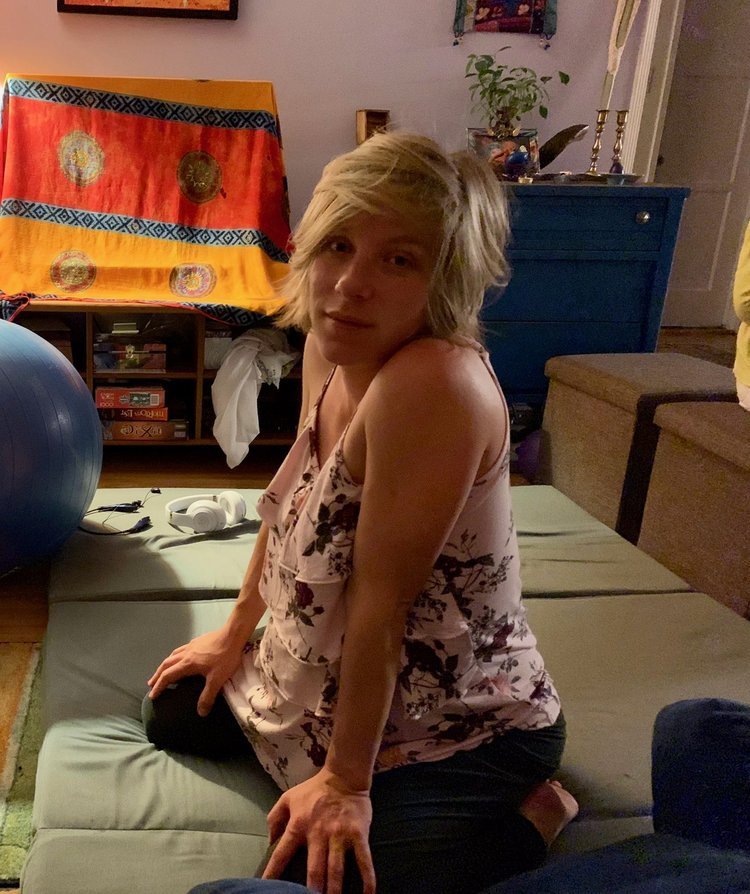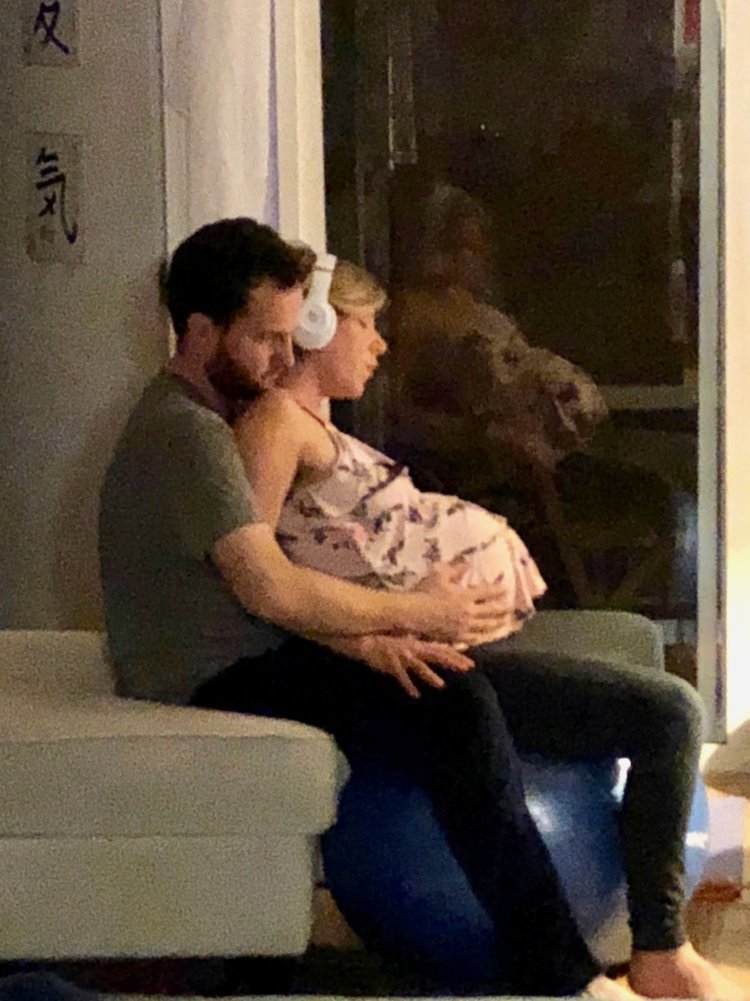Birthing Oriah Noa: my pregnancy, birth and postpartum journey
I was prepared for the birth of my first baby. It was what came before and afterwards that caught me by surprise.
Below, I share my journey to shed more light on a less-often talked about part of birthing, and to contribute to the national effort to raise up women’s voices and experience. I hope that those who haven’t had much exposure to birthing, especially future mothers, will find this personal sharing helpful. I welcome any mothers who feel inspired to share their story in the comments. We are part of a village, and the more we honestly share the realities of our lives and choices, the more support we will find in one another.
This is my pregnancy, birthing and 2 weeks postpartum story.
When I got pregnant, my main worry was about relinquishing my independence to enter motherhood. I wasn’t too concerned about how I would handle being pregnant—I was healthy and fit, and I figured I would have an easy pregnancy. Considering all the things that can go wrong during a pregnancy, I was very lucky that I was able to stay active and grow a healthy baby. But the process had challenging periods—I developed gestational diabetes, and it took many months to figure out how to control it with diet and exercise. I had debilitating stomach aches and acid reflux, which would keep me up at night and drain me in the morning. I got sharp rib pain in the second trimester that never went away and made it uncomfortable to sit down or lie on my right side. In retrospect, these difficulties helped me have a healthier pregnancy, because I ate better, exercised more, and would stand instead of sit to relieve the pressure on my ribs, keeping me in better shape. But combined with my hormonal rollercoaster and preparing my life for a huge change, these unforeseen challenges in my pregnancy sometimes brought me quite low. In fact, the happiest I felt during my entire pregnancy was the last month when I had finally figured out how to manage my gestational diabetes and stomach aches. I felt strong and healthy, albeit very swollen, and the end to my rib pain was in sight.
Throughout my pregnancy I focused on doing all I could to have the birth of my dreams. I knew what I wanted—a natural home-birth in water, to feel calm, positive and spiritually connected throughout the experience, and a small birth team who would support my choices and my needs. I got my prenatal care from a midwife team and found a doula. I took a hypnobirthing class to tackle my fears and strengthen my mind for birth. I read books on natural approaches to pregnancy and birth, listened to a hundred hours of birthing podcasts, and wrote the first draft of a book that explores Jewish texts through the lens of pregnancy and birthing. I went to yoga classes and swam at the gym multiple times a week, did squats and various exercises every morning and night, got regular body work done. I kept a restrictive diet to control my gestational diabetes, measuring my blood sugar 10 times a day, knowing that if I needed insulin I’d have to birth in a hospital. I began a number of natural induction methods before my due date, worried I’d go past my 41 week cut off and need to be induced, which would mean birthing at a hospital. It would appear that those methods worked, because I began my birthing time the day after my due date.
My surges began October 30th at 6pm (“surges” and “birthing” are more positive terms for contractions and labor in hypnobirthing terminology). I’d been in school all day and then went to a bris. The mohel said that when the baby cries, the gates of heaven open, and at that moment our prayers are more easily heard. I prayed for an easy birth and that it would happen the next day. I walked home and took a bath, listened to a hypnobirthing track and told my uterus that whenever it was ready for birthing, I would give over the reins. About 20 minutes later, I felt my first surge, and it came on strong. I had to pause from working on my homiletics sermon and breathe deeply through the tightening. I gave up on writing within ten minutes and tried to get some things ready for the birth. But the surges were so strong so quickly that I wasn’t able to help for long. I felt surprised by their strength. I wondered, if this is how they feel at the very beginning, how much more intense are they going to get? But I reminded myself that my body was built to birth, and that I would handle whatever came.
We ended up calling my parents, who were visiting in town, to bring us some things from the grocery store and help Jon get the apartment ready for the hours of birth while I focused on my surges in the living room. I put down our foam camping pad on the floor once the surges became too powerful to lie down through. I spent most of the time on my hands and knees, kneeling over my couch, yoga ball, and leaning back on Jon. They came like waves, a quick peak and then a slow descent that I tried to breathe and relax into. I entered into a steady rhythm of surging, breathing and releasing. At one point I asked Jon how long I had been having surges, thinking it had been an hour. It had been four.
By ten o’clock my surges were four minutes apart and a minute long, and we called our doula to relieve my parents. She and Jon helped support my body and guide my breathing as the surges increased in strength and length. With each surge I tried to will my cervix to open, imagining it spreading apart like a blooming flower. After an hour I found my mucus plug. I never felt scared—I felt overcome by some of the surges, especially when they occasionally merged together, but I trusted that things were progressing well, and the time went by quickly. At midnight the midwife arrived, and I asked to go in the tub (if you go in the tub too early it can stall your labor, so you have to wait until you are in active labor). The midwife said that she thought it was too soon—after all, it was my first birth, I’d only been having surges for 6 hours, and I was very calm and communicative between surges. I asked, “if I let you check my cervix and I am dilated enough, then could I get in?” She said yes and did a cervical check. She was surprised that I was already 8 centimeters. I looked around at my doula, Jon and my midwife, and said, “FILL UP THAT TUB!”
I got in the tub around 1:30, relaxed for a little and then pushed for 90 minutes. I did NOT like the pushing part. When it was just surges, I would wait and ride them out—the pushing took every ounce of strength I had. I felt like I was reshaping the inside of my body by force, and I needed encouragement from my doula and midwife to push through. Through most of it I was facing Jon on my knees and gripping his arms with all my might. I asked him to sing to me the chant, “I am opening up in sweet surrender to the luminous love-light of the One.” My midwife asked if I wanted some guidance with my pushes to move things along. After contemplating it through a few surges I said yes, and she started coaching me. Oriah Noa was born in water at 4:41am, 11 hours after my first surge. The midwife put her straight into my arms. She didn’t cry, just looked up at the world for the first time, her eyes wide open.
My team helped me out of the tub and onto our bed as I held Oriah Noa, where I delivered the placenta, and then left Jon, Oriah and I alone for an hour. Oriah was still attached to the cord and placenta. I nursed her, and Jon and I cuddled and stared at her, massaging vernix into her skin, trying to grasp the enormity of the moment. I wanted to cherish every second but was distracted by the pain from the tear I endured from pushing out her head. The midwife team came back in, helped Jon cut the cord, gave Oriah a vitamin K shot and checked her vitals. She was 8 pounds 8 oz, with quite a large head, and the team commended me for pushing out such a big baby. Then they set to sewing up my tear, for which I needed 4 stitches. They kept checking my uterus, painfully massaging my belly to help it contract and prevent hemorrhaging. When they helped me up to go to the bathroom I could barely walk, and it began to dawn on me just how much I had pushed my body to its limit. The next few days showed me that recovering from this birth was going to be a bit different than I expected.
Using the bathroom created painful burning. I couldn’t stand, sit or walk for more than a minute without pain. Nursing Oriah caused my uterus to contract, which felt like the worst menstrual cramps I’d ever had. Her latch was shallow and pinched me, and I saw two lactation consultants who couldn’t fix it. But I was still her life-line—I had to nurse her, and my post-birth injuries and exhaustion made this very challenging during the first few days. My uterus was emptying out, and it was like having my period on steroids. After 5 days my pain increased, and I discovered all my stitches had fallen out, the wound had reopened, was infected, and couldn’t be resown. This meant bedrest, a longer recovery time and stricter self-care. Advil dulled the edge, but I was in constant discomfort and felt searing shots of pain throughout the day from moving the wrong way or using the bathroom.
Throughout these days I was falling deeply in love with Oriah Noa, in total awe of what Jon and I had birthed. I’d look at her and spontaneously start crying with joy and amazement. I felt grateful for my birth experience and proud of how Jon and I made it happen. I loved having family around to help us and fawn over their first grandchild and niece, and enjoyed delicious food made by family and friends. I felt held, supported, loved, appreciated and validated in everything I was experiencing. But I didn’t like being dependent and unable to care for my own needs, and obviously it was hard to be in constant pain. For the first week and a half, I could not do anything for myself besides walk to the bathroom and back to bed. The midwives assured me my recovery rate was normal and I should rest and receive. I just had not anticipated this level of incapacitation and slow healing. A big part of my postpartum journey has been learning to accept my pain and the time it is taking to heal myself.
Now I am two weeks from Oriah’s birthday. I helped cook myself breakfast for the first time this morning. Every day I can stand a little longer, lie a little bit more upright. Nursing is improving every day. But the road of recovery is long, and I’ve learned over the past weeks from my health team and through postpartum books that if I push my recovery now, I will pay for it later. Many traditions throughout the world have postpartum customs that shower new moms with special food and medicine for 40 days after birth, and don’t allow them to do any sort of work or to even leave the house. Now that I am in a body healing from 9 months of pregnancy and birthing a baby, while learning to nurse and care for her, I see the wisdom in setting apart that kind of time for recovery, discovery and self-care.
So for as long as my body tells me to, I stay on the couch. I am Skyping into classes with help from my awesome classmates, taking medicinal baths, eating nourishing foods with Jon and constantly cuddling with Oriah Noa, who lights up my world. Birthing her was the hardest and most rewarding thing I have ever done, and every day brings a new adventure of getting to know her and discovering what it means to be a mother.
I am grateful for this journey, and feeling ready for whatever comes next.







